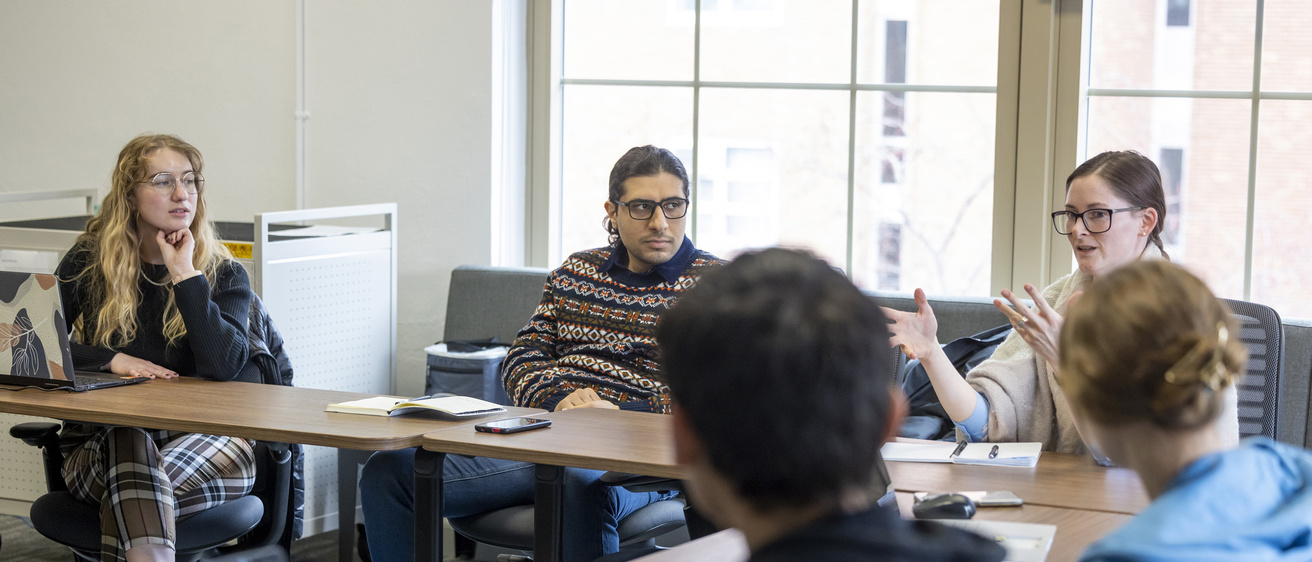Main navigation
Iowa is unique among national R-1 institutions broad research areas in that our department possesses active academic and research programs in both sociology as well as criminology.
Areas of expertise include social stratification, inequality, and social psychology, as well as crime, violence, criminal justice, and government policy. Our renowned faculty conduct original research in these fields and have excellent records of attracting external funding. Furthermore, they serve the discipline and larger community through teaching, private and academic research, government and community research, and policy making.
Research centers, initiatives and resources

Center for Criminology & Socio-Legal Studies
Founded in 1979 by Professor Lyle Shannon, The Center for Criminology and Socio-Legal Studies is a venue that allows faculty, graduate students, and undergraduate students to study crime, law, deviance, mental health, and social control.

Center for the Study of Group Processes
On Jan. 20, 1992, the Center for the Study of Group Processes was formally established in the Department of Sociology and Criminology at The University of Iowa. This represents an explicit commitment by the University to provide infrastructural support for multidisciplinary research on group processes.

ICPSR
Through the Department of Sociology and Criminology, University of Iowa maintains membership in the Inter-University Consortium for Political and Social Research (ICPSR), which is operated by the University of Michigan. This membership enables members of the university community to obtain a vast array of data for secondary data analysis.

Iowa Social Science Research Center
Started in August 2006, the Iowa Social Science Research Center (SSRC) is an interdisciplinary institution dedicated to furthering social science research and practice across the university, and developing ways to connect that research to the broader community.
